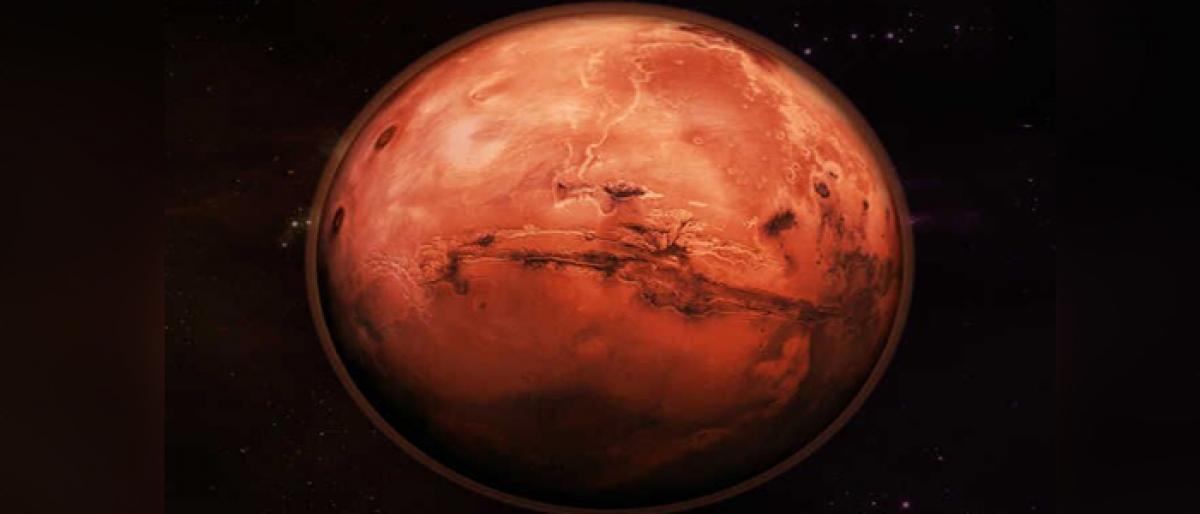Liquid water on Mars may hold enough oxygen to support life

Salty pools of water under the surface of Mars could hold enough oxygen to support the kind of microbial life, according to a study which contradicts existing views on the red planets potential habitability The findings could inform future missions to Mars by providing better targets to rovers searching for signs of past or present habitable environments, researchers said
Salty pools of water under the surface of Mars could hold enough oxygen to support the kind of microbial life, according to a study which contradicts existing views on the red planet's potential habitability. The findings could inform future missions to Mars by providing better targets to rovers searching for signs of past or present habitable environments, researchers said.
A team led by scientists at NASA's Jet Propulsion Laboratory (JPL) and California Institute of Technology (Caltech) in the US has calculated that if liquid water exists on Mars, it could -- under specific conditions -- contain more oxygen than previously thought possible. According to the model, the levels could even theoretically exceed the threshold needed to support simple aerobic life. The existence of liquid water on Mars is not a given.
Even if it is there, researchers have long dismissed the idea that it might be oxygenated, given that Mars's atmosphere is about 160 times thinner than that of Earth and is mostly carbon dioxide. "Oxygen is a key ingredient when determining the habitability of an environment, but it is relatively scarce on Mars," said Woody Fischer, a professor at Caltech. "Nobody ever thought that the concentrations of dissolved oxygen needed for aerobic respiration could theoretically exist on Mars," said Vlada Stamenkovic, from JPL, lead author of the study published in the journal Nature Geoscience.
Finding liquid water on Mars is one of the major goals of NASA's Mars programme. In recent months, data from a European spacecraft have suggested that liquid water may lie beneath a layer of ice at Mars's South Pole. It has also been hypothesised that water could exist in salty subsurface pools, because perchlorate salts (compounds of chlorine and oxygen) have been detected at various places on Mars.
Salt lowers the freezing point of water, which means that water with perchlorate in it could potentially stay liquid despite the freezing temperatures on Mars, where summer nights on the equator can still dip down to minus 100 degrees Fahrenheit. If salty water were close enough to the surface of the Martian soil, then it could effectively absorb oxygen from the thin atmosphere, researchers said.








